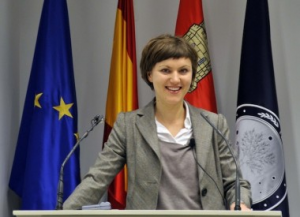Event Date:
Event Location:
- Ellison Hall 3824 (Lane Room)
Magdalena Wojcieszak
What encourages citizens to take an active part in the political process? What are the factors that make people more inclined to join a protest, write a letter to a public official or attempt to persuade someone? Traditionally, scholars have shown that people participate because of who they are (e.g., Smith, 1999; Verba et al., 1995), because of the benefits they obtain (e.g., Riker & Ordeshook, 1968) and because they are mobilized (e.g., Rosenstone & Hansen, 1993; Tarrow, 1998).
In this talk, I argue for the importance of attending to communicative factors in participation theory and research. I outline three communicative factors that may encourage citizens to take an active part in the political process: (1) media exposure, (2) interpersonal communication, and (3) online social networks. Because people tend to select like-minded political content, discuss politics with like-minded individuals, and join politically like-minded online groups, I will focus specifically on the mobilizing role played by exposure to pro-attitudinal information and the potential demobilizing role of exposure to conflicting perspectives. In my presentation, I draw on three different datasets from two different countries to illustrate the various ways in which these communicative factors matter to political participation across samples, issues, and sociopolitical contexts.

